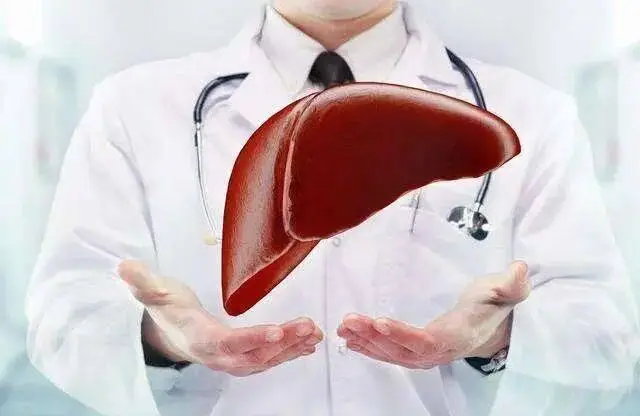As the saying goes: "A poor liver is a sign of old age."
The liver is the body's largest detoxifying organ and the primary digestive organ. Known as the "general," it plays a vital role in the body. However, the liver lacks pain nerves, making liver disease difficult to detect. Therefore, many people experience severe discomfort only when they are already in the middle or late stages of the disease.

If you experience any of these conditions or liver problems, get checked out early.
• Itchy Skin
When liver function is impaired, especially when the intrahepatic bile ducts are blocked, bile secretion becomes more concentrated. Bile salts combine with bilirubin and flow into the bloodstream. As the blood circulates throughout the body, bile hydrochloric acid can deposit on the skin, irritating it and causing itching.
• Yellowing of the Skin
Jaundice is common in newborns. Jaundice occurs when the liver is unable to excrete bilirubin. Elevated bilirubin levels cause the skin to appear yellow. Adults can also experience this phenomenon. Liver abnormalities are prone to jaundice. Initially, the whites of the eyes appear yellow. As the condition worsens, the skin also turns yellow.

• Easy Bruising
If bruises have occurred recently and frequently occur without any other injuries, it may be a sign of liver disease. The human liver produces many essential proteins, one of which is albumin. It's specifically responsible for moving molecules through the bloodstream and promoting proper blood clotting. Therefore, when the liver is damaged, it releases less clotting protein, making blood stasis more likely.
• Water Retention
Water retention should be a cause for concern, as it may be a symptom of advanced liver disease or cirrhosis.
When the liver is damaged, it increases pressure in the blood vessels and reduces fluid circulation, ultimately leading to water retention. This often occurs in the abdomen, hands, and feet.
Maintaining liver health is not difficult, but there are no foolproof solutions. Therefore, it's important to change bad habits and develop good liver-nourishing habits, which may gradually strengthen your liver.
Liver Health Tips: 3 Sweet foods harm the liver, so eat less. 2 Bitter foods nourish the liver, so eat more. Don't make the mistake next time.
• 3 Sweets
01. Ice Cream
Many people enjoy ice cream, whether in the scorching summer or the cold winter. Ice cream can be uplifting. However, frequently consuming cold foods can not only harm stomach health, but the high levels of sugar and food additives can also burden the liver. The large sugar molecules in ice cream are particularly difficult to digest and can easily lead to fat accumulation in the body, causing fatty liver disease.

02. Sugarcane
Winter is sugarcane season. As we all know, sugarcane is the main raw material for white sugar. Eating large amounts of sugarcane and consuming too much sugar without being consumed quickly can not only lead to obesity, but can also increase blood sugar levels and increase the risk of fatty liver disease.
03. Milk Tea
Milk tea has become a popular online drink, and most women have no resistance to it. However, milk tea contains a lot of sugar and additives. Excessive consumption can cause obesity and put a strain on the liver. It can also lead to decreased liver function, cirrhosis, and even liver cancer.
• 2 Bitterness
01. Propolis
Propolis is a very nourishing ingredient with a relatively mild nature. Regular propolis supplementation can enhance the body's resistance and immunity while minimizing blood sugar spikes. For both diabetics and the general public, the flavonoids in propolis promote capillary dilation, maintain blood sugar balance, and reduce the burden on the liver, providing liver nourishment and protection.

02. Bitter Melon
Bitter melon can clear heat, detoxify, and dispel liver fire. For those with excessive liver fire, eating bitter melon can nourish the liver and eliminate it. The bitter melon extract in bitter melon promotes bile secretion and aids liver detoxification. Eat more bitter melon salad on a regular basis.
Liver health and well-being require careful attention. In addition to adjusting your diet, you should also develop healthy lifestyle habits. Avoid staying up late, drink more water, and exercise regularly to strengthen liver function and maintain a healthy liver.

%20--%3e%3c!DOCTYPE%20svg%20PUBLIC%20'-//W3C//DTD%20SVG%201.1//EN'%20'http://www.w3.org/Graphics/SVG/1.1/DTD/svg11.dtd'%3e%3csvg%20version='1.1'%20id='图层_1'%20xmlns='http://www.w3.org/2000/svg'%20xmlns:xlink='http://www.w3.org/1999/xlink'%20x='0px'%20y='0px'%20width='256px'%20height='256px'%20viewBox='0%200%20256%20256'%20enable-background='new%200%200%20256%20256'%20xml:space='preserve'%3e%3cpath%20fill='%23FFFFFF'%20d='M194.597,24.009h35.292l-77.094,88.082l90.697,119.881h-71.021l-55.607-72.668L53.229,232.01H17.92%20l82.469-94.227L13.349,24.009h72.813l50.286,66.45l58.148-66.469V24.009z%20M182.217,210.889h19.566L75.538,44.014H54.583%20L182.217,210.889z'/%3e%3c/svg%3e)




